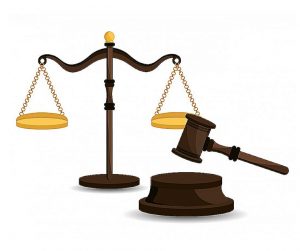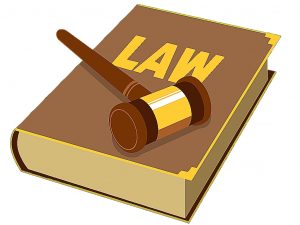Differences Between Act And Law: Various approaches are used by the legal system to explain rights and obligations. It consists of the laws, practices, and organizations that allow for the lawful execution of both public and private enterprises. Nevertheless, even if we obey these laws and regulations every day, it is up to each individual whether they are followed or broken, and the criminal justice system is in charge of doing so.
What would happen in the event if there were no laws or acts to punish crimes or other offenses? Due to people’s lack of concern for retribution or consequence, there will be complete anarchy and danger, and they will act whatever they like. Therefore, as community members, it is our social responsibility to ensure that everyone may live in safety, feel confident using the streets, and treat others properly. Acts and laws are put into place for our security and protection. These aid in ensuring a peaceful society as well as the just and equitable resolution of people’s disputes.
To prevent any inevitable circumstances, one must grasp how the actions and laws are intended to protect both persons and society. Consequently, it is on us to adhere to them scrupulously. However, despite their lack of clarity, individuals regularly use the terms “Law and Act.”

Due to their frequent use when reading or analyzing information from a legal perspective, the phrases Law and Act are frequently used interchangeably by those who are unfamiliar with their respective scopes of application and have no background in legal theory.
The legal vocabulary used to describe the two differs, though. Law, in its most basic definition, is a body of regulations that tell individuals how to act in different circumstances and are upheld by social institutions that are held accountable. An item of legislation known as an Act, on the other hand, is a law that is created or modified by a Parliamentary act. Acts and laws can differ from one another in several ways.
As a result, we’ll be talking about how acts and laws differ in this post.
Recommended: Differences Between A Contract And An Agreement
Meaning Of Law
Law is referred to as a body of established and upheld governmental rules and regulations. It is intended to regulate how the nation’s residents behave, safeguard their rights, and also ensure that everyone is treated equally. The members of society are given certain rights and obligations. Furthermore, by directing and defending individuals at all times, laws contribute to the upkeep of social order. Always simple to comprehend are laws. In plain words, they are communicated to the broader population. For instance, it’s against the law to operate a car without a current driver’s license.

Consequently, individuals are aware that they must have a valid license while driving. If someone violates the law, they might be subject to sanctions or punishment.
Each nation has a legal framework unique from that of other nations. These ideas, nevertheless, are accepted by everybody. In practically every country, laws are made by a designated group of people elected by the public to represent their interests– often members of Parliament, and are intended to be upheld by all to impose justice in every scenario. Those who disobey the law or break it might be punished with fines, jail time, or both.
Recommended: Differences Between Meditation and Prayer
What Exactly Is An Act?
An act is often a constitutionally created plan that the government creates. Law is less precise and less specific than an act. The act must have a majority vote from the parliament’s ministers to pass. A bill is what an act is known as before it is approved by the parliament to become law. An act becomes more specific when it is possible for it to exclusively apply to a certain group or aspect of society.

An act informs individuals about the criteria that apply to a certain scenario and discusses why and how people should follow specific legislation. Once an act has been approved with higher assent by members of parliament, it can only be amended by passing another act. When an act is repealed, its provisions are no longer in effect. Making and enforcing laws as necessary is under the purview of the parliament of a nation.
Also see: Differences Between Law And Statute
Differences Between An Act And A Law
1. Meaning: To sustain law and order in society, the law is a definite collection of regulations that are either established by the state court or the national court. It is described as a framework or set of guidelines developed and implemented by governmental or non-governmental organizations to monitor, control, and uphold the welfare of the people who live in a certain community.

Any section of the law that addresses certain situations and individuals is known as an Act. The legislation that the Parliament has authorized is referred to as such in legal terminology. Initially, a bill becomes an act after being approved by both chambers in a particular manner.
2. Objective: To protect individuals from unfair actions and to preserve public order, the law is objectively enforced. The major goals of its implementation are to defend fundamental rights, put a stop to wrongdoings, and preserve the peace.
Contrarily, the primary intent behind the development of the act was to inform the public about the laws that apply in various scenarios.
Also see: Oldest Books in The World
3. Nature: Law is broad in scope, encompassing all rules and regulations enacted by the government at any given moment. Every nation’s legal system is heavily reliant on laws to protect citizens against unfair activities, whether they occur in a market, workplace, office, school, or anywhere else. No of their ethnicity, gender, or even classification, all the nation’s residents are subject to the same rules.
Contrarily, the act is specific since it only applies to certain circumstances, such as all contract-related provisions falling under the purview of the Contract Act or partnership-related provisions falling under the purview of the Partnership Act, etc.

4. Relationship: Over the bigger picture, Law usually has a solitary purview. The act comes after Law because there wouldn’t be an Act if there were no laws to define them. The Law itself is divided into Acts.
Also see: Oldest Books in The World (With Pictures)
5. Outlines: An act description explains why and how a law is applied, and this is what an Act does. The law, on the other hand, stipulates what is right and wrong in every situation.
6. What it entails: It’s well-known that the law exists. A bill that the Parliament or one of its houses of the legislature has presented becomes an act at first. The Lok Sabha and Rajya Sabha subsequently adopt the Bill, and the President then signs the legislation into law, bringing the Bill to a successful conclusion.
Recommended: Most Corrupt Countries in Africa 2022
7. Government authority has the power to regulate laws and exercise sovereignty over them. Acts are laws that the Legislative Body or the Government enacts to clarify its purpose and duty to the public in a certain situation.
8. Regulation creates law, and because it can be enforced, it is valid. The Bill represents something through an Act, which is passed in support of the Bill but is not yet in effect.

Recommended: Best Educational YouTube Channels For Students
Conclusion
The topic of the Difference Between Law And Act is crucial because it emphasizes the different differences between a law and an act. A law or an act is necessary for the correct operation and structure of the administration of society and the nation as a whole. But when it comes to power, we might conclude that the law is more potent than the act.

Edeh Samuel Chukwuemeka, ACMC, is a lawyer and a certified mediator/conciliator in Nigeria. He is also a developer with knowledge in various programming languages. Samuel is determined to leverage his skills in technology, SEO, and legal practice to revolutionize the legal profession worldwide by creating web and mobile applications that simplify legal research. Sam is also passionate about educating and providing valuable information to people.